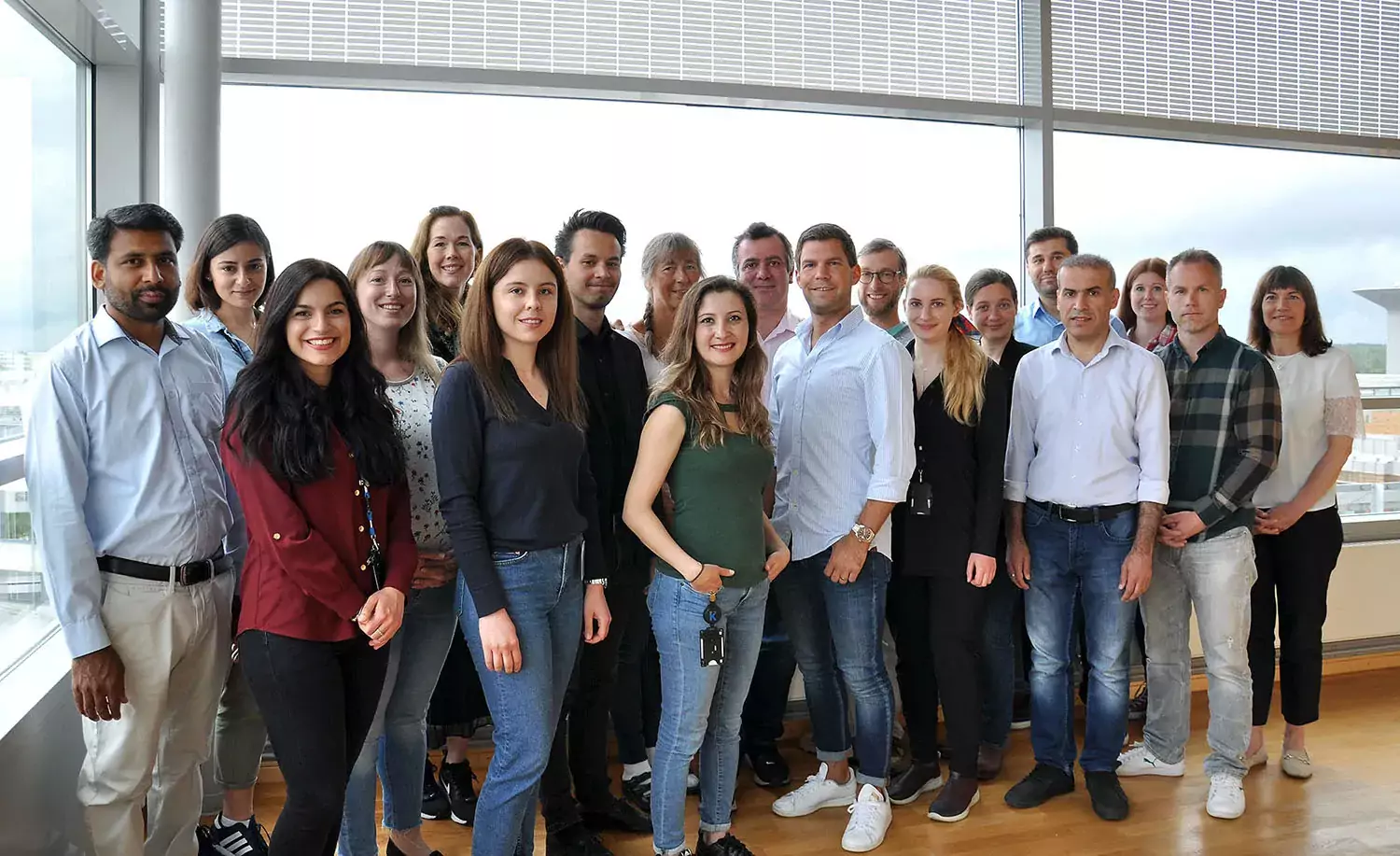Our research
Our group’s primary research focus is to optimize and clinically adapt strategies to retarget NK cells to tumors with limited off-target effects and toxicity profiles. For this purpose, we are currently performing clinical trials where NK cell responses are enhanced and retargeted against tumor cells in patients with MM. More specifically, we aim to develop novel NK cell-based therapies including next-generation engagers, next-generation chimeric antigen receptors for NK cells (CAR-NK), and next-generation small molecules for NK cell modulation. Our mission is to shorten production time, increasing target cell specificity, and eliminating unwanted side effects of current cell-based immunotherapies. The product candidates are developed in our translational research laboratories and tested in the clinic, alone and/or in combination with select existing therapeutics (e.g., antibodies, bispecific engagers, small molecules).
Multiple myeloma (MM)
MM is a malignant neoplasm characterized by clonal proliferation of plasma cells in the bone marrow accounting for 2% of all cancer deaths and nearly 20% of deaths caused by hematological malignancies. The standard treatment for MM is high-dose chemotherapy conditioning with autologous stem cell transplantation (SCT) and immunomodulatory drugs (IMiD), proteasome inhibitors (PIs) as well as monoclonal antibodies (mAbs). Although recent developments in therapies significantly improve the median overall survival (OS), the disease remains incurable due to the persistence of minimal residual disease. Novel modalities complementing or enhancing current treatment options are needed. We collaborate closely with the Myeloma Group where Evren Alici is currently Acting Principle Investigator.
Projects
Our projects include generation and testing of genetically engineered NK cells, including chimeric receptor and CAR-NK cells against multiple target antigens. We are exploring the use of small molecules and oncolytic viruses to increase NK cell reactivity against tumor cells in vivo and in vitro. In parallel, we are customizing plasmids and viral vectors for optimal gene transfer into immune cells.
Arnika Wagner team
Genetic Modification of NK cells for Optimized Functions against Cancer
The Wagner team strives to optimize NK cell functions for cell therapy against cancer. The research can be divided into three areas, optimization of NK cell genetic modification, development of novel chimeric receptors for improved tumor-targeting, and dissection of genes important for distinct NK cell functions. The main interest is to understand how NK cell functions against cancer can be improved and harnessed in cellular therapy. Towards these goals, we combine molecular biology, genetic modification, flow cytometry, proliferation and cytotoxicity assays, and CRISPR screening to assess pathways leading to enhanced killing, improved genetic modification and enhanced resistance to immune suppressive cues.
Our vision is that our generated knowledge will be translated into development and optimization of next-generation NK cell therapy against cancer.

